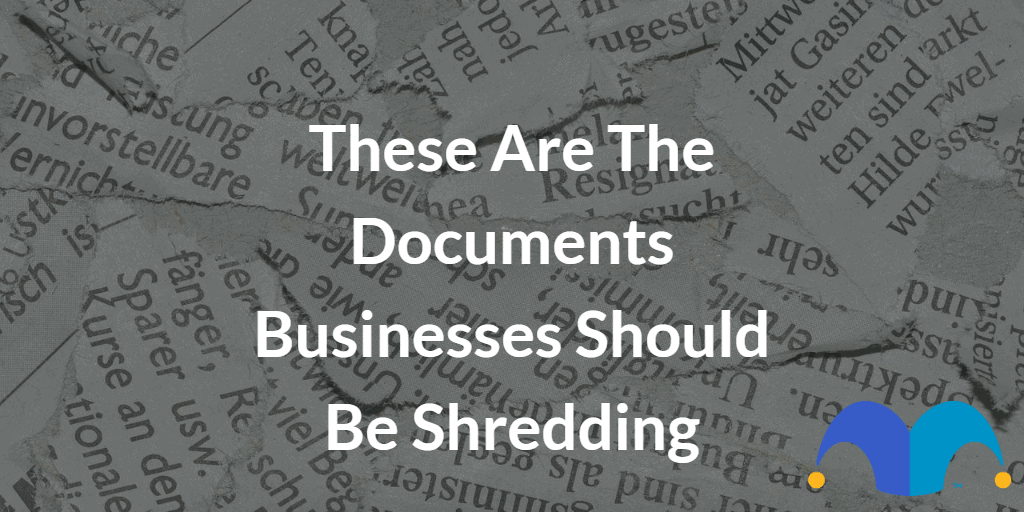Businesses generate hundreds or even thousands of documents in the course of their day-to-day work. Some of these documents contain sensitive data and information. Such documents could put the business at risk or lead to hefty punishment if not handled the right way. To prevent this from happening, it’s best to shred documents when they are no longer needed. So, which documents should businesses pay most attention to when shredding?
Let’s find out.
Which documents should businesses be shredding?
Experts at confidential shredding company Go Shred have shared the types of documents that businesses should prioritise. Let’s take a look.
Financial information
This includes documents that contain financial transactions or sensitive details about people such as:
- bank account details
- salary documents
- budget documents
- tax returns
- sales receipts/contracts
- payroll information
- bank and credit card statements
- voided cheques
Company information
This includes unique company documents that either guide business operations or describe the company’s structure and distinguish it from competitors.
Some of the main documents to pay attention to here include:
- IT audits
- company structure documents
- pricing structures
- supplier information
- training information
- marketing collateral
Employee information
This information includes key employee documents that should always be shredded when no longer needed:
- payroll
- addresses
- medical information
- employment records
- appraisals
- employee reviews
- disciplinary reports
- absence and sickness information
- promotions
- CVs
- IDs and access cards
Client or customer information
This involves documents such as:
- Contracts
- Non-disclosure agreements (NDAs)
- Printed correspondence such as emails
- Photo ID documents
- Any other documents that contain personal information such as names, addresses, phone numbers and email addresses.
Department-specific information
According to Go Shred, attention should also be paid to department-specific information. A few documents that stand out in this category are:
- Documents handled by R&D teams, including feedback, monitoring and evaluation reports, technical drawings and plans for new products.
- Sensitive documents handled by management teams, such as strategy reports, business plans and management accounts.
- Crucial documents handled by procurement departments, such as tribunal documents, disciplinary information, medical records, appraisals and internal employee policies.
What are the consequences of not shredding documents?
Failure to shred unnecessary business documents can result in a number of serious consequences.
For starters, there are legal implications to consider. By not shredding old documents, you run the risk of breaching privacy laws. If the documents end up in the wrong hands and sensitive information is exposed, then you risk a hefty fine. You could also face other penalties that could harm your company’s reputation.
Failing to shred unnecessary documents could put your customers and employees at risk of identity theft. Criminals may search your company’s rubbish bins for valuable customer and employee information, such as names and addresses. They could then use this information to commit fraud, such as applying for credit cards.
Furthermore, failure to shred company information, including strategy plans and business plans, could seriously disadvantage your business and give power to competitors if it ever falls into the wrong hands.
Then there are logistical concerns to consider. Large piles of unneeded paperwork around the office take up valuable space. They can also be a fire risk.
Placing documents in standard rubbish bins for disposal at the nearest landfill is also bad for the environment. Understandably, sustainability is a high priority in today’s business world. And you can play your part by shredding documents and making sure that paper is recycled and reused.
What is the best approach to shredding documents?
Organisations typically use two approaches for shredding documents: in-house or outsourced shredding.
Typically, the approach you use will depend on the size of your organisation and the volume of documents for shredding.
If it’s a small organisation with a small number of documents, then shredding them in-house may be the simplest and most cost-effective option. If it’s a medium to large organisation with a large number of documents, then outsourcing could help. This involves using a firm that specialises in this type of work. Doing so could save you time while also ensuring that the work is done correctly.
